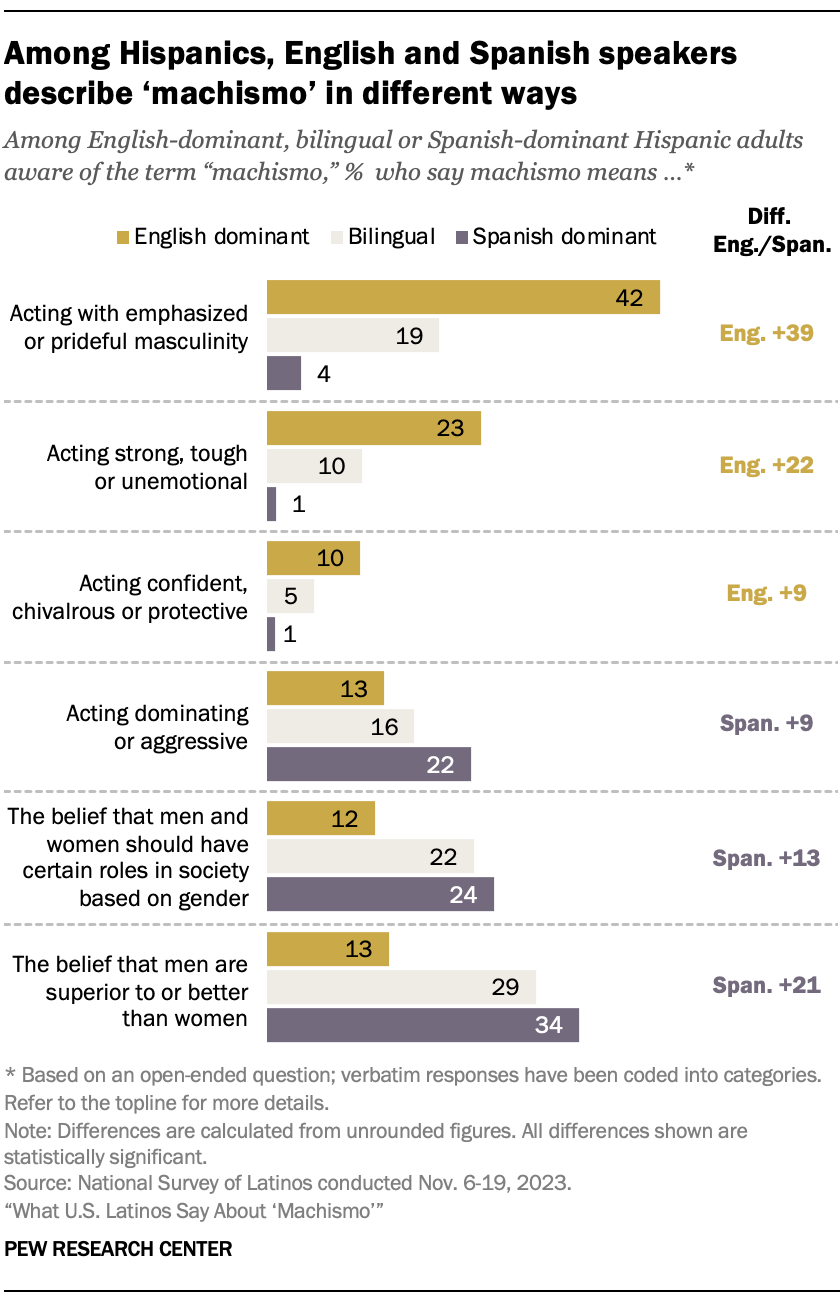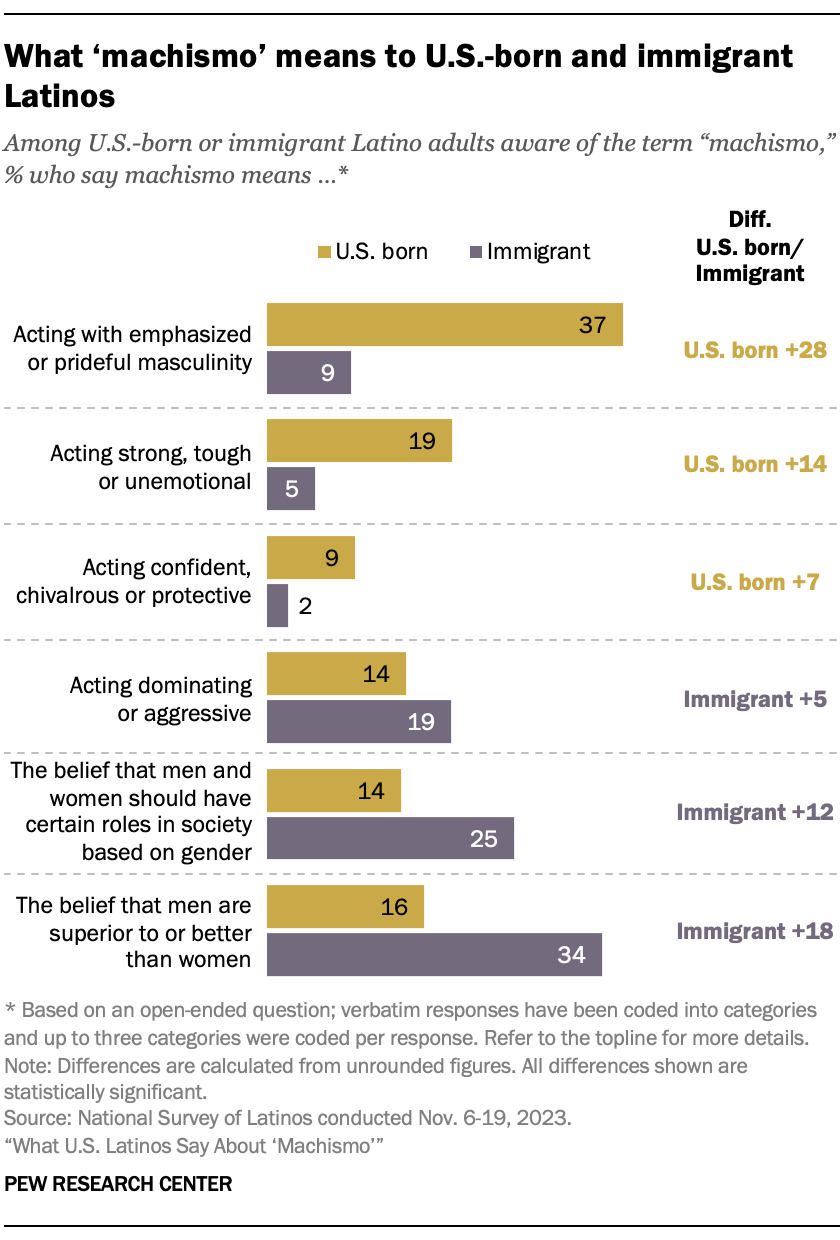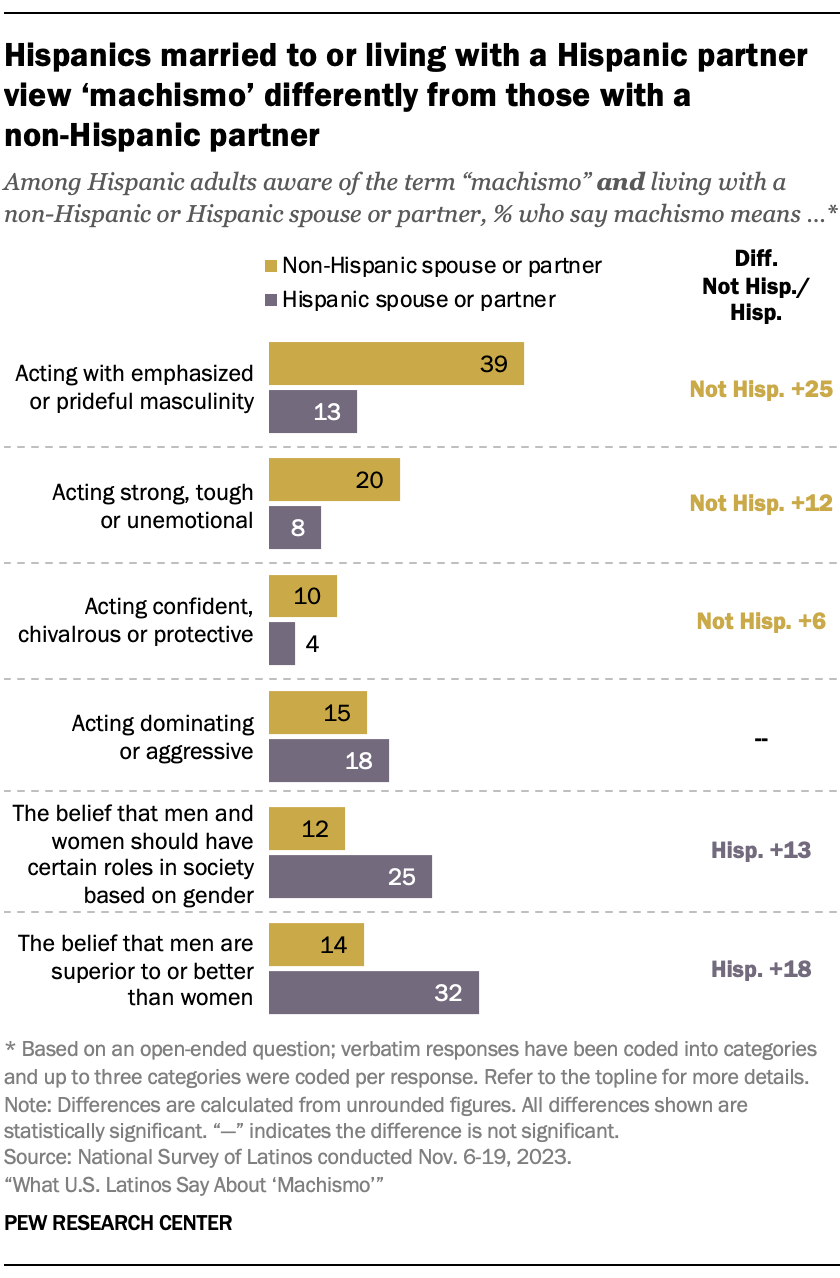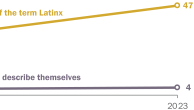“Machismo” doesn’t have a single meaning among Hispanic adults who have heard of the term. However, certain groups of Hispanics are more likely to describe the concept in some ways than others. This chapter explores patterns among Hispanic adults in what machismo means to them.
By language

Machismo has its roots in the Spanish language, but the concept is prevalent in both Spanish- and English-speaking contexts. Survey findings show that views of machismo differ across Latinos’ language dominance.
Latinos who have heard of machismo and primarily speak English are more likely than primary Spanish speakers to say machismo means:
- Acting with emphasized masculinity or having masculine pride (42% of English-dominant Latinos say this vs. 4% of Spanish-dominant Latinos)
- Acting strong, tough or unemotional (23% vs. 1%)
On the other hand, Spanish-dominant Latinos are more likely than English-dominant Latinos to say machismo is:
- The belief that men are superior to or better than women (34% of Spanish-dominant Latinos describe machismo this way vs. 13% of English-dominant Latinos)
- The belief that certain roles in society should be based on gender (24% vs. 12%)
By nativity and immigrant generation

Hispanics’ birthplace and the number of generations their family has lived in the U.S. are also linked to their views of machismo. For instance, among those who have heard of “machismo,” immigrants are twice as likely as U.S.-born Hispanics to say machismo is the belief that men are superior to women (34% vs. 16%).13
Among the U.S. born, there are also differences by generation: 20% of second-generation Latinos – those with at least one immigrant parent – define machismo this way, while 10% of Latinos with two U.S.-born parents do.
By spouse or partner ethnicity

Hispanics who are married to or living with a Hispanic partner hold different views about machismo than those with a non-Hispanic spouse or partner.
For example, among Hispanic adults aware of the concept, those with a Hispanic partner are more likely than those with a non-Hispanic partner to describe machismo as the belief that men and women should have gender-based roles (25% vs. 12%). This pattern appears among both men and women:
- Among Hispanic men, 23% with a Hispanic partner say machismo is the belief that roles in society should be based on gender, versus 7% with a non-Hispanic partner.
- Among Hispanic women, 27% with a Hispanic partner describe machismo this way, versus 16% with a non-Hispanic partner.
By gender
There are only modest differences in how Hispanic men and women who have heard of machismo describe the concept:
- Hispanic men are more likely than Hispanic women to say machismo means emphasized or prideful masculinity (26% vs. 18%).
- Meanwhile, Hispanic women are more likely to say machismo is the belief that men and women should have gender-based roles (23% vs. 16%) or that it means acting dominating or aggressive (20% vs. 13%).
When describing machismo in other ways, however, Hispanic men and women are closely aligned. For example, similar shares say machismo means acting strong, tough or unemotional (13% of men and 11% of women).
By political party
Latinos across political parties define machismo in similar ways. For example, 17% of Democrats and Democratic-leaning independents say machismo means acting dominating or aggressive, as do 15% of Republicans and Republican leaners.
For more details on how other groups of Latinos describe machismo, including by age and education, refer to the appendix.
U.S. Hispanics’ views of the pressures Hispanic men face
The survey also asked Hispanic adults related questions about the pressures that Hispanic men face in the U.S. today:
- 46% say that in general, Hispanic men in the U.S. today face a great deal or fair amount of pressure to avoid talking about their feelings.
- 33% say Hispanic men face pressure to join in when other men are talking about women in a sexual way.
- 28% say Hispanic men face pressure to physically intimidate others.
Overall, Hispanic adults are more likely to say that Hispanic men face each of these pressures than Hispanic women do. For example, 29% say Hispanic women in the U.S. today face a great deal or fair amount of pressure to avoid talking about their feelings – smaller than the 46% who say the same about Hispanic men.
However, Hispanic adults are more likely to say Hispanic women face pressure than Hispanic men on other topics asked about in the survey. Some of these include doing the cooking and cleaning at home, being physically attractive and having few sexual partners.
For additional survey findings on the pressures that Hispanic women and men face in the U.S. today, read “A Majority of Latinas Feel Pressure to Support Their Families or To Succeed at Work.”




